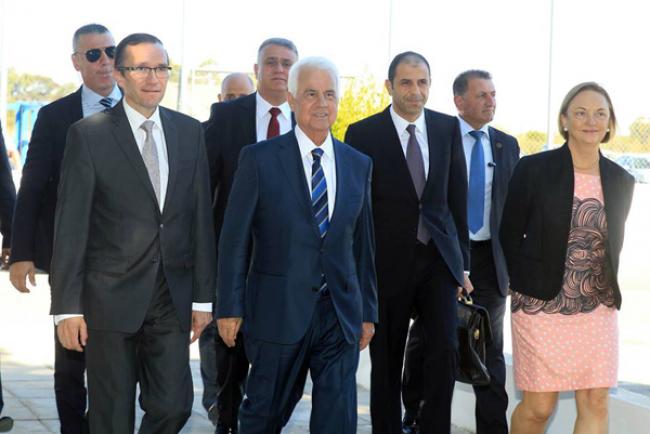18 Sep 2014

“The leaders met on Wednesday in a friendly and constructive atmosphere following their fruitful discussions at dinner last night,” said Eide in a statement to the press.
According to the statement, the leaders agreed that their negotiators and teams had completed submitting proposals on all issues and recognised the enormous amount of work that had been conducted to conclude the second phase of the negotiations.
“The leaders have reaffirmed their commitment to lead the negotiations in an interdependent, results-oriented manner, through a win-win approach – with the aim to reach a settlement as soon as possible and hold separate simultaneous referenda thereafter, in order to put an end to the unacceptable status quo, as outlined in the Joint Declaration.”
Further, the leaders agreed to move to the next phase of structured negotiations and to increase the fluency of their meetings, as appropriate, and to hold meetings at least twice a month.
“They have instructed their negotiators to enter into active negotiations with a view to bridging the gaps through real negotiation on unresolved core issues and to increase the pace of their meetings,” said Eide.
The leaders also thanked [Lisa] Buttenheim for her “tireless efforts” in facilitating talks during the five months that she was acting Special Adviser.
The United Nations works through the good offices of the Secretary-General to assist in the search for a comprehensive and mutually acceptable settlement to the Cyprus problem.
The UN also maintains a peacekeeping force in Cyprus, known as UNFICYP, which was deployed in 1964, when inter-communal fighting erupted on the Mediterranean island.
Special Adviser on Cyprus Espen Barth Eide (left) with the leaders of the Greek Cypriot and Turkish Cypriot communities. Photo: UNFICYP